Coffee
Coffee typically contains high levels of caffeine – a stimulant that can increase heart rate and blood pressure, causing blood vessel tension. Excessive caffeine consumption can cause blood vessels to constrict, especially those in the brain, leading to reduced blood flow and worsening symptoms such as headaches and dizziness.
In addition, caffeine can also reduce the body's ability to absorb iron, hindering the body's production of hemoglobin (hemoglobin in red blood cells, responsible for transporting oxygen to the brain).
Therefore, to ensure the production and transport of blood to the brain is effective, patients should not consume too much coffee. It is best for patients to limit caffeine intake to below 200 mg / day.
Ale
Due to the effects of alcohol (ethanol) on smooth muscles in blood vessel walls, regular or large consumption of alcohol can cause excessive dilation of blood vessels, causing low blood pressure and reducing blood supply to the brain.
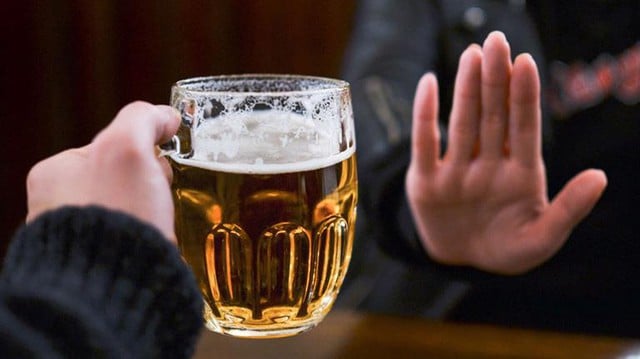
Regular or large amounts of alcohol consumption can cause excessive dilation of blood vessels, causing low blood pressure and reducing blood supply to the brain.
In addition, the alcohol in these drinks also inhibits the activity of antidiuretic hormone (ADH), causing dehydration and reducing the ability to transport oxygen in the blood, thereby aggravating cerebral anemia.
Energy drinks, soft drinks
Energy drinks and soft drinks both contain large amounts of sugar, potentially causing blood sugar to spike after consumption. For people with cerebral anemia, a sudden increase in blood sugar can temporarily increase blood pressure, thereby aggravating symptoms such as dizziness and headache.
In addition, similar to coffee, energy drinks also contain high levels of caffeine, which affects red blood cell production and blood circulation.
What should people with cerebral anemia pay attention to in their diet and daily activities?
In addition to the list of what to drink for cerebral anemia, this patient also needs to remember some notes in daily diet and activities to optimize the effectiveness of treatment, such as:
Increase iron-rich foods: Prioritize red meat, liver, fish, beans, dark green vegetables such as spinach and nuts to support hemoglobin production and improve blood circulation to the brain;
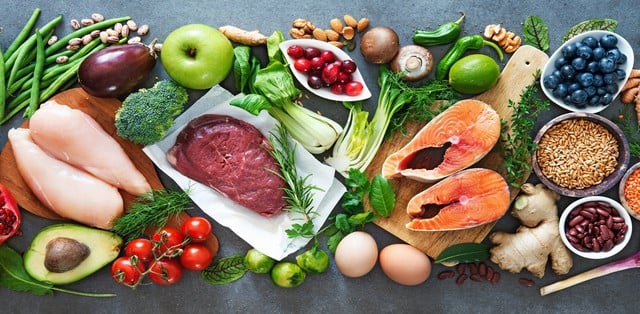
Increase iron-rich foods.
Supplement vitamin C: Foods rich in vitamin C such as oranges, lemons, and strawberries can help increase the body's absorption of iron, supporting the blood regeneration process;
Replace animal oils with vegetable oils: Use sesame oil, sunflower oil or almond oil instead of animal oils to reduce bad cholesterol and protect the circulatory system;
Limit protein from red meat: Reduce consumption of red meat such as beef, pork, lamb, goat and instead, increase intake of eggs, beans and seafood to both meet the body's protein needs and limit excessive absorption of saturated fat from red meat.
Replace regular starch with whole grains: Brown rice, brown noodles, oats... are often rich in fiber and antioxidants, have the ability to support blood sugar control, good for heart health and blood circulation;
Exercise regularly: You should maintain light exercises for at least 30 minutes/day such as walking, swimming or yoga to improve blood circulation and enhance the efficiency of the cardiovascular system;
Get enough sleep: Ensuring 7-8 hours of sleep each night can help the body recover and optimize blood circulation to the brain;

Ensuring 7-8 hours of sleep each night can help the body recover and optimize blood circulation to the brain.
Avoid sudden changes in position: Patients should pay attention to changing positions slowly, especially when standing up from a sitting or lying position to avoid dizziness and lightheadedness;
Monitor and control underlying diseases: People with cerebral anemia should have regular check-ups at least twice a year to monitor their condition as well as control underlying diseases such as low blood pressure, atherosclerosis, etc. At the same time, consult a nutritionist for advice on building a scientific diet.
Source: https://giadinh.suckhoedoisong.vn/nhung-do-uong-nguoi-benh-thieu-mau-nao-can-tranh-172250417144211475.htm


![[Photo] Opening of the 14th Conference of the 13th Party Central Committee](https://vphoto.vietnam.vn/thumb/1200x675/vietnam/resource/IMAGE/2025/11/05/1762310995216_a5-bnd-5742-5255-jpg.webp)







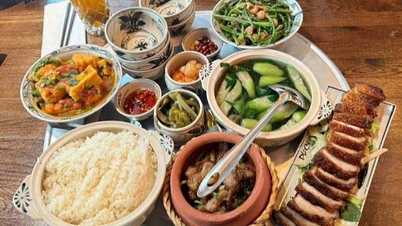













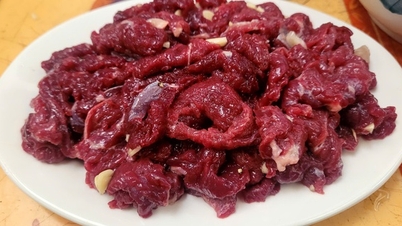


![[Photo] Panorama of the Patriotic Emulation Congress of Nhan Dan Newspaper for the period 2025-2030](https://vphoto.vietnam.vn/thumb/1200x675/vietnam/resource/IMAGE/2025/11/04/1762252775462_ndo_br_dhthiduayeuncbaond-6125-jpg.webp)




































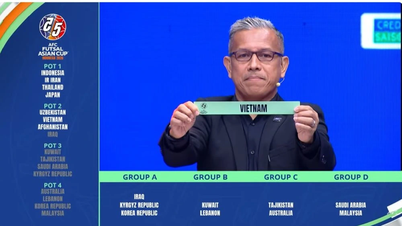
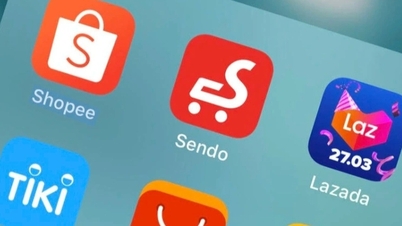












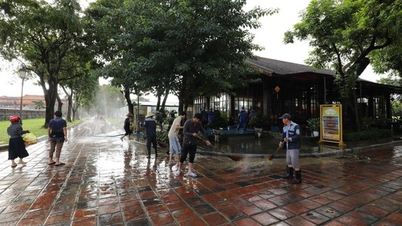

























Comment (0)